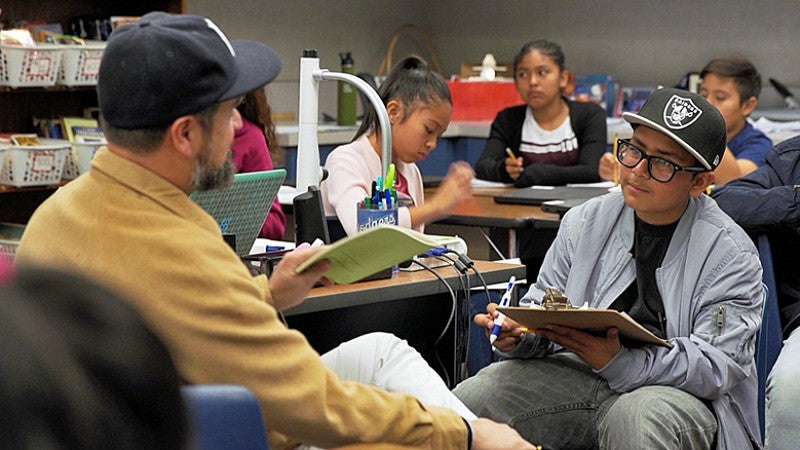Not only are they some of the best teachers in the nation, SOJC faculty members are also active change agents in their industries and groundbreaking researchers in their fields. Here’s a sampling of select faculty research and creative projects making an impact.
Combining Modern Science with Traditional Knowledge
Building traditional boats helps children on Alaska’s Kodiak Island connect to their community’s Sugpiaq traditions, its land, and the ocean that sustains their native villages. In his latest series of documentary shorts, “A Qayaq to Carry Us,” professor of practice Mark Blaine explores how traditional knowledge combined with modern science can illuminate a community’s present realities and future direction. Blaine, an award-winning investigative reporter and associate director of the Center for Science Communication Research (SCR), partners with researchers and organizations to tell science-based stories.
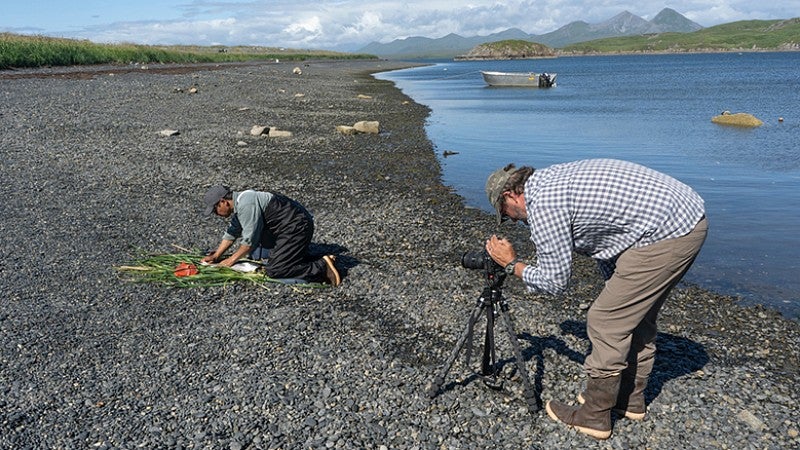
My STEM Story Boosts Minority Students’ Interest in Science and Tech
College students from underrepresented groups are 16 times less likely to do well in STEM (science, technology, engineering, and mathematics). To change this, the National Science Foundation awarded Assistant Professor Ed Madison and his College of Education colleagues a $1.2 million grant for My STEM Story. The project pairs Oregon high school students from diverse backgrounds with STEM undergraduates for a mentoring program on the UO campus—with a digital storytelling twist.
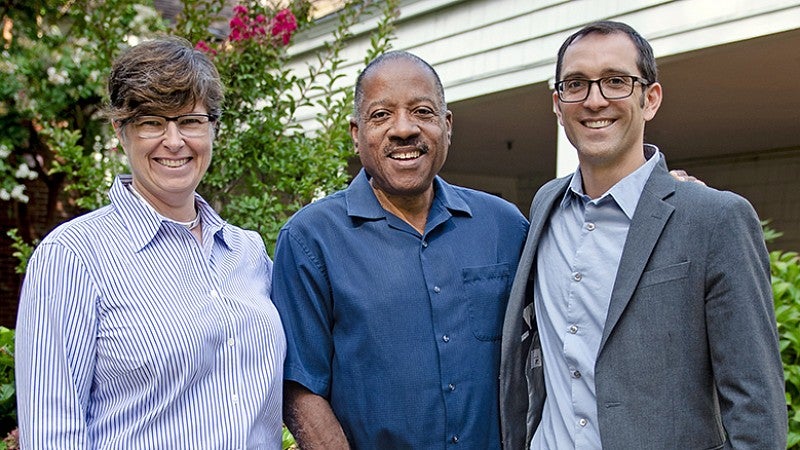
Catalyst Journalism Project: Investigative + Solutions Journalism
Launched in 2017 by SOJC faculty Nicole Dahmen, and Brent Walth, the Catalyst Journalism Project brings together investigative reporting and solutions journalism to spark action and response to Oregon’s most perplexing issues. A partnership with the Solutions Journalism Network, the project combines student experiential learning with faculty research to help journalism put greater pressure on leaders to solve problems by showing readers that problems are not intractable.
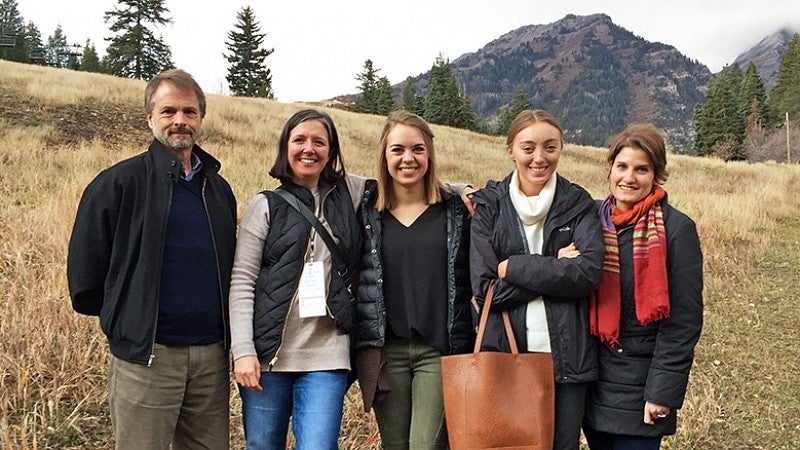
Real-Life Benefits of Virtual Reality
In virtual worlds like Second Life, we can take on new identities, defy the laws of biology and physics, and push social boundaries with little to no consequence. But do these online experiences have any effect on our real lives? Associate Professor Donna Davis's National Science Foundation–funded research shows how interacting as an avatar improves quality of life for people with disabilities.
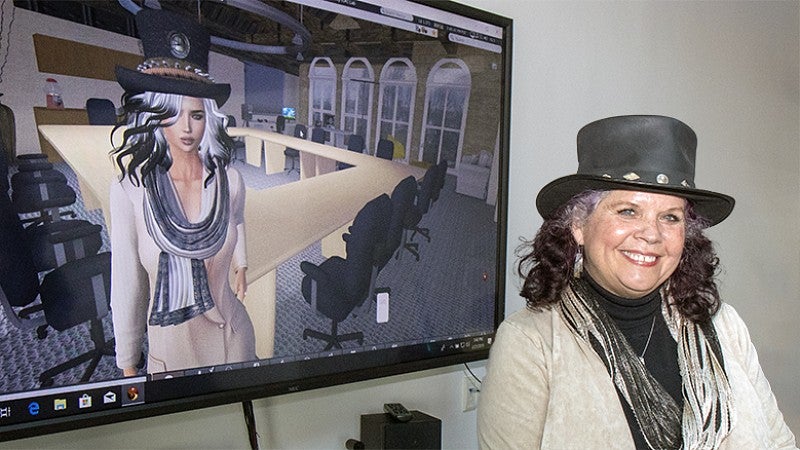
Listeners Podcast Explores Craft of Listening
Journalists often ask, “How can I get better at engagement?” The answer is simple: You need to listen. That’s why the SOJC Agora Journalism Center launched the Listeners Podcast, a free audio series about the craft and practice of listening. Weekly guests include top names in engagement journalism and others whose jobs require deep listening, such as clergy and mediators. SOJC Chair in Journalism Innovation and Civic Engagement Andrew DeVigal hosts the series, and Multimedia Journalism Master’s students produce it.
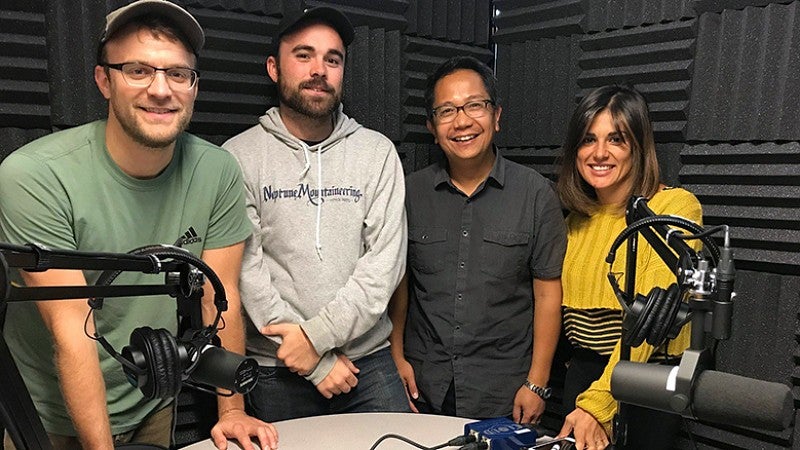
Photographing Modern American Indian Life
Professor of Practice Torsten Kjellstrand got the idea for “Unvanished: Seeing American Indians in the 21st Century” during a classroom discussion on the ways photographs can lead to beautiful truths—and ugly distortions. With the help of a grant from the SOJC's Agora Journalism Center, Kjellstrand worked with five SOJC students and Native American photographers from reservations around the Pacific Northwest to capture images of modern life as an American Indian.
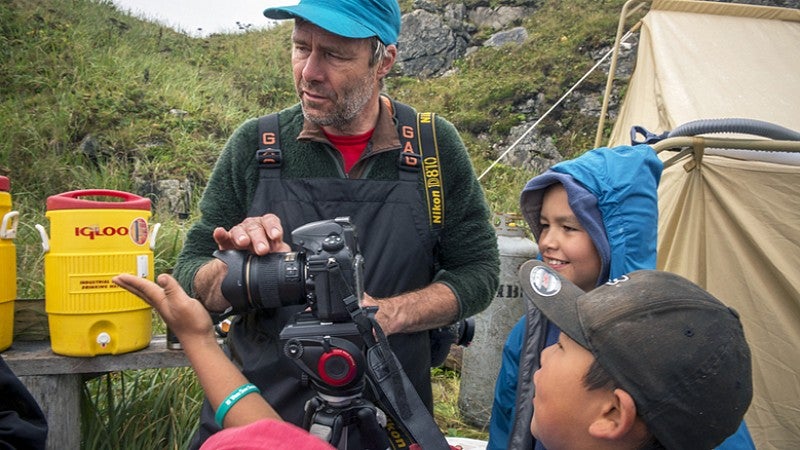
Journalistic Learning Initiative Builds Middle School Skills
Many of the skills journalists use—from reading and writing to researching and asking thoughtful questions—are the same abilities students need to succeed in school and their future careers. That’s the philosophy behind the Journalistic Learning Initiative, an SOJC collaboration with the College of Education. The program has already begun improving learning outcomes for underserved middle and high school students in Oregon and California.
